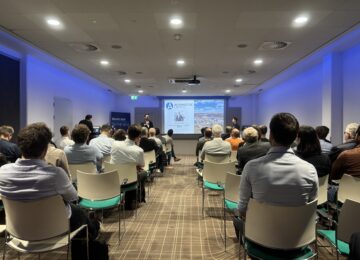ACM: discount on transmission tariffs for batteries that reduce congestion
The ACM today concluded in a follow-up study that battery systems that in practice help make smarter use of the grid should receive a discount on their transmission tariff. The follow-up study stems from the 2021 Electricity Storage Market Scan, which concluded that current transmission tariffs should not get in the way of the electricity storage business case.
Discount transportation rates depending on location and time of day
The ACM now indicates in the follow-up study that a discount on transmission tariffs is indeed desirable if these batteries can also help address grid congestion. Whether battery systems really help relieve grid congestion depends on the location and timing of battery charging and discharging. According to the ACM, a lower transmission tariff for battery systems should therefore only apply if, in practice, demonstrable investments are avoided and costs are saved. In view of the speed required for the energy transition and the importance batteries around a reliable electricity grid in this, the ACM considers a change in the tariff structure specifically for the incorporation of batteries desirable in the short term.
The National Grid Congestion Action Program (LAN) therefore agreed that Netbeheer Nederland, in consultation with the ACM, will come up with a proposal to change the grid tariffs for battery systems. Energy Storage NL is closely involved in this and is now holding talks with Netbeheer Nederland and the ACM on this subject. The ambition is to reach a supported proposal around the summer.
Dutch storage sector happy with recognition, translation of EU rules important
Energy Storage NL is pleased that the ACM also concludes that an adjustment of the transmission tariffs for energy storage is necessary. Energy Storage NL has repeatedly stated that the current transmission tariffs are a major obstacle to a profitable business case for energy storage. The current transport tariffs ensure that the number of storage projects in the Netherlands is currently limited, with ultimately major consequences for the energy transition. That now the ACM is also calling for an adjustment feels like recognition for continuously putting this problem on the agenda, according to Energy Storage NL.
For Energy Storage NL, however, it is important that the classification and level of transmission tariffs corresponds to the provisions of the EU Regulation 2019/943 and Directive 2019/944 around energy storage. This has direct effect for all member states. A correct translation of the Regulation and Directive ensures that an uneven playing field with neighboring countries, such as with Germany, Belgium and UK that currently have a (partial) exemption on transmission tariffs, is avoided. According to Energy Storage NL, the ACM rightly concludes in the memorandum that there is now a difference between countries. This now makes it more financially attractive for storage parties to locate abroad, while the Netherlands now so desperately needs energy storage, according to Energy Storage NL. According to Energy Storage NL, a thorough legal analysis of the interpretation of the EU Regulation and Directive on transport tariffs for energy storage is missing in the memorandum published today.





